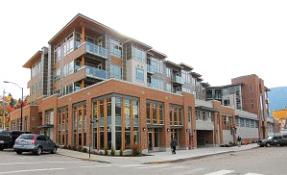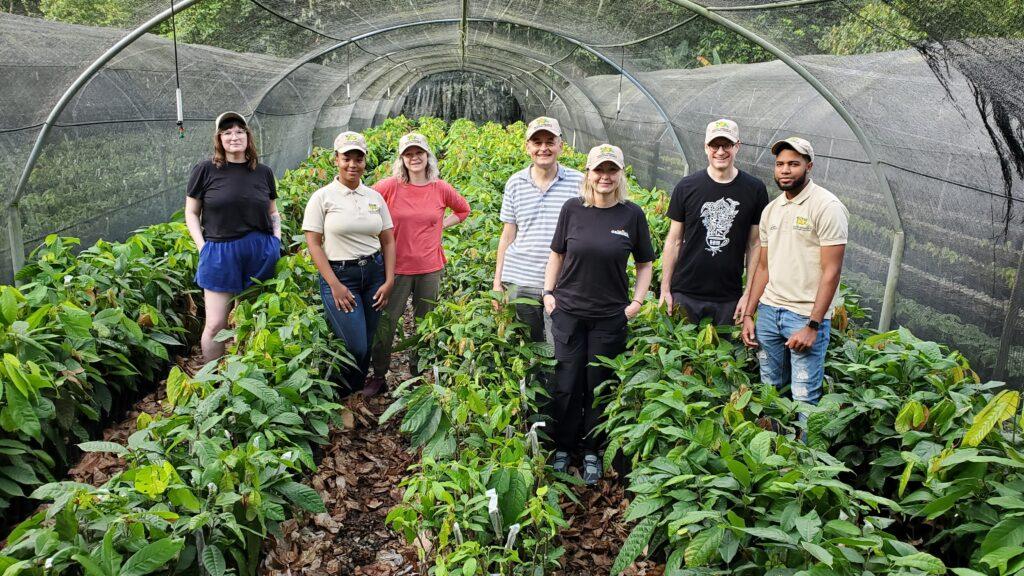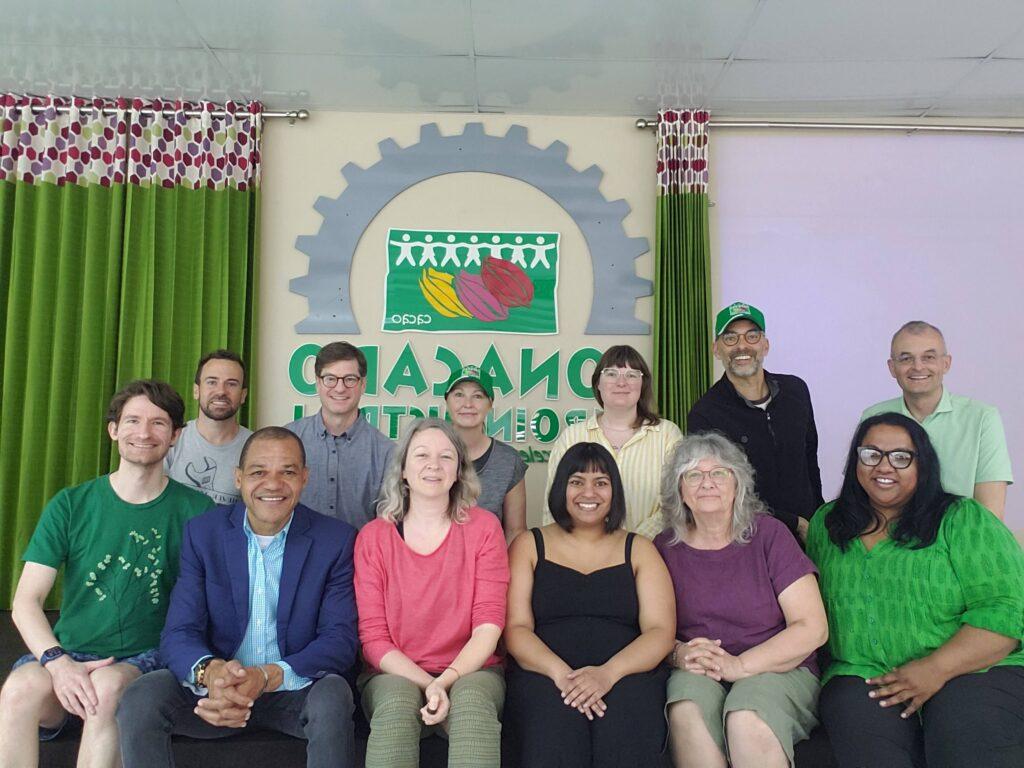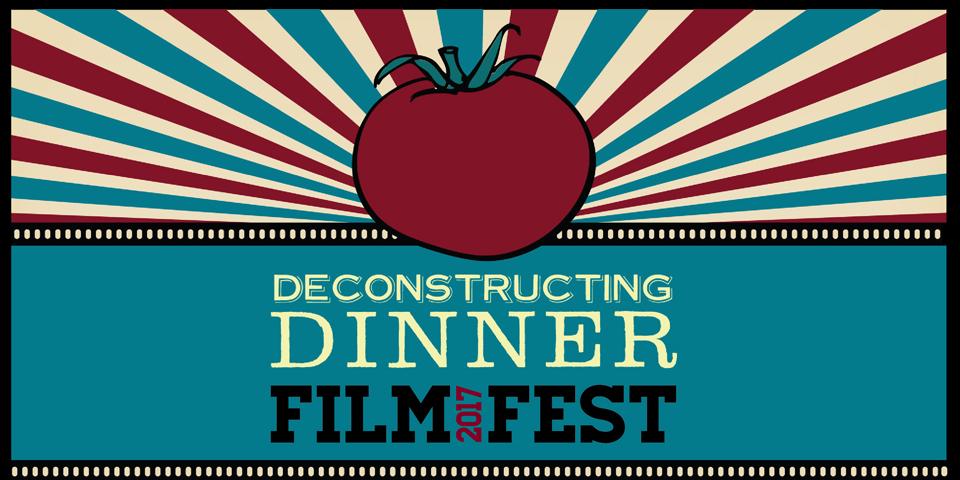
“Film is a powerful medium to inspire reflection and change, and it’s within this that the Deconstructing Dinner Film Fest finds its roots. The event is built upon the belief that when a community gathers together over many days to expand our awareness of food, we will become stronger in our efforts to cultivate a resilient and vibrant local food culture.” – Jon Steinman
Jon Steinman is the founder and director of the Deconstructing Dinner Film Festival, which completed its 5th successful film season in November 2017. Camino sponsored the Festival’s chocolate themed night, which included the screening of two powerful films.
The Chocolate Case follows Dutch activists as they investigate the extent of slavery in the cocoa industry and respond by forming their own factory in Ivory Coast. The second film, El Cacao, follows farmer and COCABO co-op owner Samuel Murillo for a few rainy days, as harvests, processes and delivers cocoa beans on the Atlantic coast of Panama. We were delighted and honoured to join more than eighty residents of Nelson for the event.
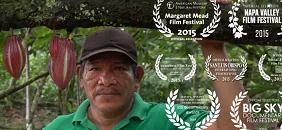
El Cacao
“The Cooperative belongs to all the farmers in the Province of Bocas. Everyone who makes organic chocolate, organic cocoa, belongs to the cocoa cooperative.” So explains Samuel Murillo in the lovely personal testimony documentary El Cacao, produced by Michelle Aguilar.
The care with which Mr. and Mrs. Murillo tend to their farm, the cocoa beans they produce, and their grandchildren is beautifully and honestly portrayed in the film. Even the farmer’s frustrating interaction with his co-op COCABO is captured.
COCABO was founded in 1952 and the farmers in this isolated Bocas del Toro region of Panama are renowned for the very high quality standards they hold one another to. Camino’s sister co-operative, Equal Exchange, makes an 80% cocoa dark chocolate bar from beans exclusively sourced from COCABO.
The Chocolate Case
Personal testimony from young men who escaped slavery in the cocoa fields of Cotê d’Ivoire provides a gripping turning point in the film The Chocolate Case. One young man explains to the film’s protagonists: “J’étais forcé de travailler et je n’avais pas le droit de quitter la plantation. Y’a pas une personne qui n’a dit qu’on ne l’a pas frappé. Y’a un qui dit que bon, lui, il ne veut pas être ici, il va fuir. Quand il est sorti, on a entendu des coups de feu.” His words, alter the lives of the Dutch activists, all of which is captured on film.
Cotê d’Ivoire is the world’s leading producer of cocoa beans. Along with its neighbour Ghana, it provides 70% of the world’s cocoa. However, as Canadian journalist Carol Off first documented, abuse and forced labour have been a persistent aspect of the Ivorian cocoa trade. Only recently have the world’s largest chocolate companies taken small steps to address the issue. Mars, Hershey, Nestle and Cargill have developed programs to improve the lives of West African cocoa farmers. The combined cost of these programs represents less than 0.03% of the combined revenues of these four companies. In contrast, fair trade premiums (funds earmarked for improving producers’ businesses and communities) were equivalent to 5.0% of Camino’s revenue in 2016.
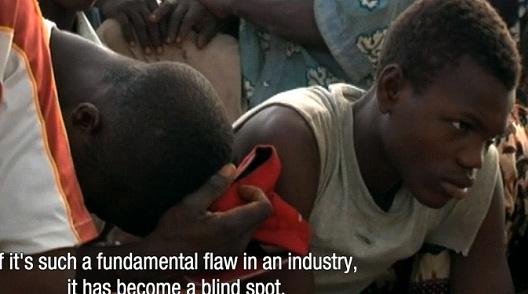
The Kootenay Co-op

The day after the film festival, we shared piping hot cups of Camino Maple Hot Chocolate with the member-shoppers of the Kootenay Co-op. “We’re glad you’re here. You can see we have Camino all over the store. People want to support a Canadian co-op,” noted Kootenay Co-op Grocery Buyer Anneke Rosch.
The shoppers at the Kootenay Co-op became enthusiastic fans of the Maple Hot Chocolate, which is the result of collaboration between Camino and three farmer co-operatives. The maple sugar is grown and produced by the farmer-owners of Citadelle Maple Syrup Producers’ Co‑operative in Québec. Citadelle has been an innovator in the maple sector since 1925. The sweetness of the maple sugar is complemented by organic cane sugar from Manduvirá Co-operative, in the Arroyos y Esteros district of Paraguay. Finally, the rich chocolatey flavour comes from cocoa beans produced by the farmer-owners of Fundepo, in the Dominican Republic. It was lovely to share this co-op grown beverage with co-op store owners.
The Kootenay Co-op’s storefront is the foundation of the Nelson Commons, which is a physical testimony to the vision and cohesiveness of the community. The Co-op began envisioning, and planning for a downtown space that combined access to healthy food, affordable housing, and flexible workspace over a decade ago. That vision became a reality one year ago, with the opening of this wonderful space and gorgeous Kootenay Co-op store.
